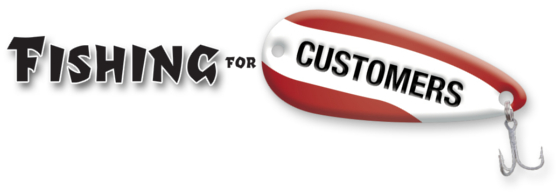It’s been said, perhaps too often, that nothing happens until someone sells something.
Then again, maybe it hasn’t been said enough.
Example #1 – The concert.
A not-for-profit agency decided to promote a concert as a fundraiser for their organization. They paid the deposit on a minor-league baseball stadium in which to hold the event.
They contacted a great number of family-friendly performing artists, asking them to perform gratis, to benefit the good works of the organization. Several artists indicated interest, but were unable to immediately commit, citing the need to clear their schedules.
The not-for-profit agency was advised to find sponsors for the event, in order to be able to pay for printing, advertising, security, and legitimate out-of-pocket expenses. They determined that they’d have an easier time acquiring sponsorship if they waited until the acts had all confirmed.
Things went along smoothly, until time to start paying miscellaneous expenses.
The not-for-profit group kicked into panic selling mode. Prospective sponsors, feeling the desperation, quite naturally distanced themselves. The family-friendly acts stared asking why no agreements were being put into final form.
The not-for-profit ran out of time, forfeited the deposit on the venue, as well as their credibility with the artists, the venue, and the community.
Example #2 – The study tool.
A husband and wife sold the business they’d built over the last decade for enough money to last the rest of their lives. They signed a non-compete agreement, which prevented them from creating a new business in the same industry.
They attempted to retire. They failed at it.
Feeling the need to do something, they looked for an opportunity in a new industry. The No Child Left Behind Act of 2001 had become the law of the land, and someone mentioned the need for additional study material. How much study material? Enough to provide tutoring for every class taught in all 13 years of public education.
They formed a company to produce self-tutoring study guides. They hired several school teachers to write the individual learning modules.
Our entrepreneurs determined that there would be less pirating of their soon-to-be copyrighted materials, if the study guides were only accessible on-line. They hired two software coders to make the materials interactive.
When they were finished composing, debugging, and making the product user friendly, everyone admitted that they’d created an incredible product. By their estimate, they sunk half a million dollars into this project.
Completely prepared, they started contacting school districts. None of those districts made appointments for demonstrations. Seems those school districts had already contracted to use another company’s product, even though it was still in the early stages of development and wouldn’t be available for another year.
Example #3 – The radio show.
A real estate broker, wanting to enhance his reputation in the community as a credible problem solver, contacted the local talk radio station to purchase an hour of time each week.
Then, as the host of a new call-in show, he sold ads within his program to a mortgage broker, a plumber, a landscaper, and a building contractor. By the time the first program aired, his broadcast had turned from an expense to a new profit center for his brokerage.
Example #4 – The headhunter.
While looking through the help wanted ads, an unemployed salesperson noticed a large number of positions available in a specific narrow field.
On a whim he phoned a few, represented himself as a headhunter who worked in that field, and asked about the range of compensation. He also asked about the employers’ willingness to pay a fee for his services. When enough of them agreed, he offered to send over an agreement.
Then he started phoning companies who employed workers in that field. When he got them on the phone, he told them he had employers lined up who were paying well for people with their particular skills. Did they know of anyone who would be interested in interviewing?
A quick trip to a quick printer 48 hours after reading the first want-ads, and our new headhunter had business cards, letterhead, confidentiality agreements, and contracts to act as agent. He also had several interviews set up for his professional clients to meet with his employer clients, and a company operating in the black within his first 30 days in business.
Finally, the moral.
Sell the concept first. Get commitment, then create the service.
Not only does this guarantee a market for the services you’ll deliver, but it also allows you to get your new customer(s) involved in the development of those deliverables. (Which is another way to keep them committed to you, by the way).
There is nothing more important to the success of any new venture than the acquisition of customers.
Without a customer you don’t have a business. You have a hobby.
